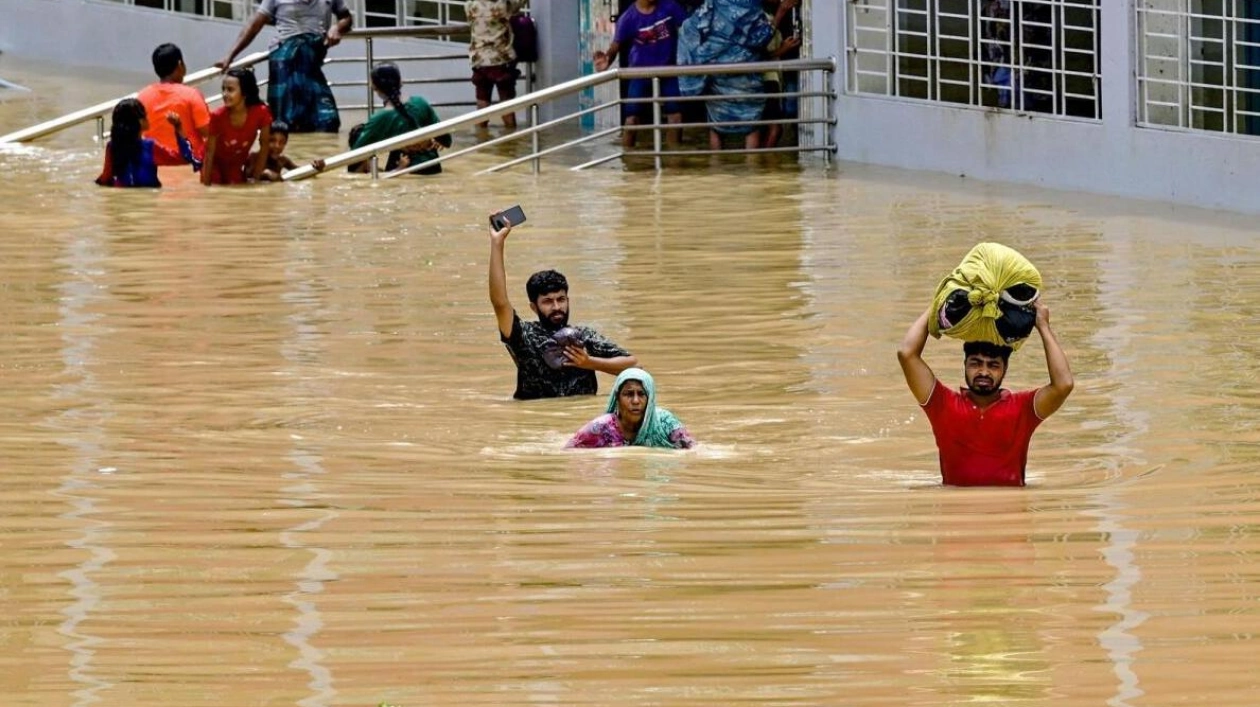At least five people have perished and over 100,000 are still stranded as catastrophic floods, caused by intense rainfall and upstream surges, continue to devastate northern Bangladesh, officials reported on Sunday.
In Sherpur, one of the most severely affected northern districts, the water levels of major rivers have risen dramatically, submerging additional areas and forcing thousands of families from their homes. Local authorities are concerned about extensive damage to agriculture, with crops and farmlands, especially rice fields, potentially facing ruin. Many homes and roads are submerged under several feet of water, isolating villages and leaving residents in urgent need of rescue.
"I have never witnessed such flooding in my lifetime," remarked Abu Taher, a resident of the district. Military personnel, utilizing boats and helicopters, have joined the rescue operations, delivering emergency supplies and evacuating those trapped by the floods. Bridges have collapsed, and roads are underwater, making it challenging for local authorities to reach the affected areas.
"Our primary focus is to evacuate people to secure shelters and provide them with essential supplies," stated Sherpur district administrator Torofdar Mahmudur Rahman. He also mentioned that another decomposed body, believed to have drifted from India, had been discovered.
The low-lying nation of 170 million has faced multiple floods this year, highlighting its susceptibility to climate change. A 2015 World Bank Institute analysis estimated that 3.5 million people in Bangladesh are at risk of annual river flooding, a risk scientists believe is exacerbated by global climate change.
As water levels continue to rise, concerns are mounting about the long-term impact on the region's agriculture, particularly rice crops. If the floodwaters do not recede soon, the economic burden on farmers could be substantial. Adding to the concerns, the weather office has forecasted more rain in the coming days, raising fears of further inundation.
The floods in August in eastern Bangladesh, which resulted in more than 70 deaths, caused damage estimated at $1.20 billion, according to a study by the Centre for Policy Dialogue, a prominent think-tank. The United Nations and its partners have initiated a $134 million humanitarian appeal to provide immediate relief and support to communities affected by ongoing floods and cyclones in Bangladesh.






